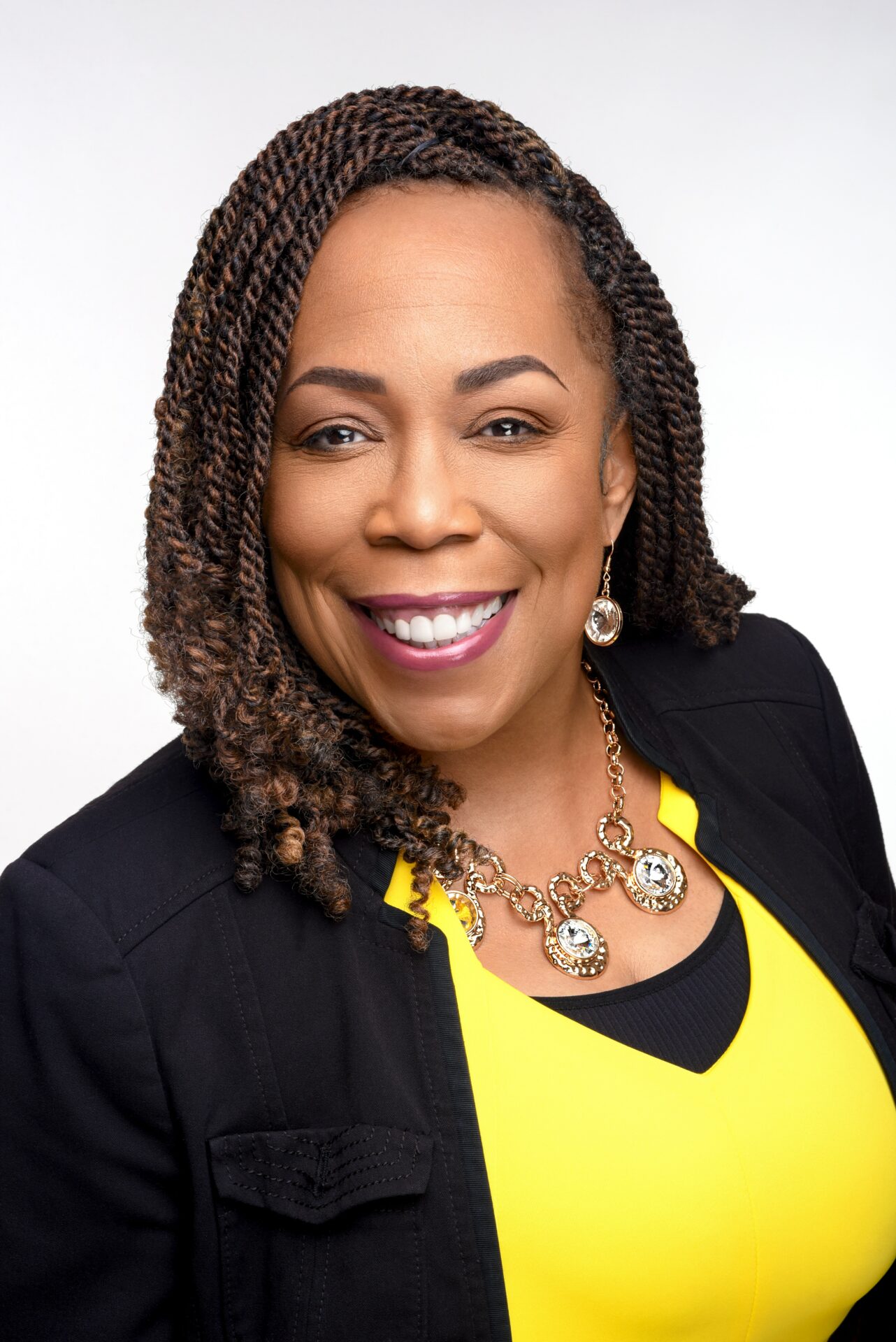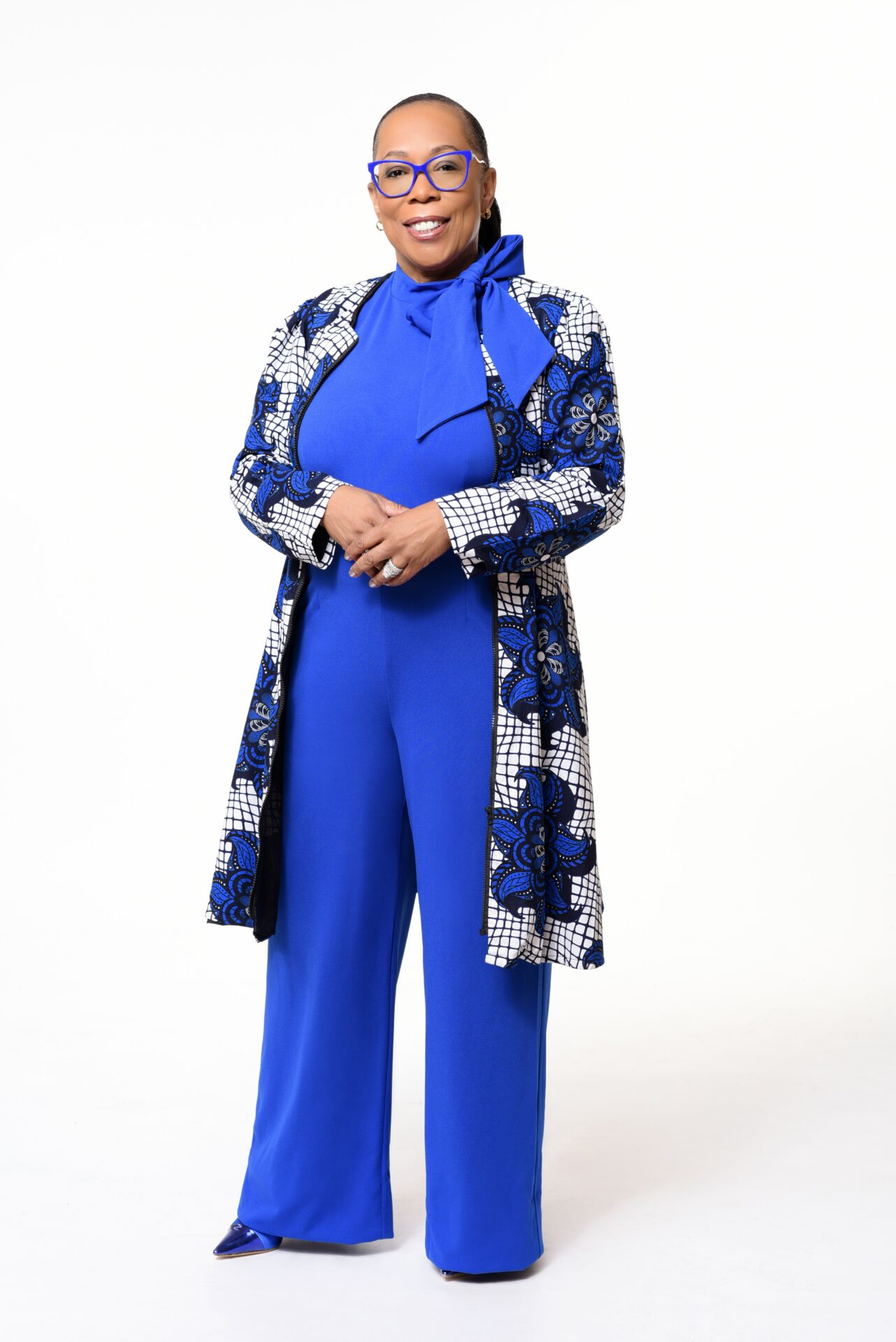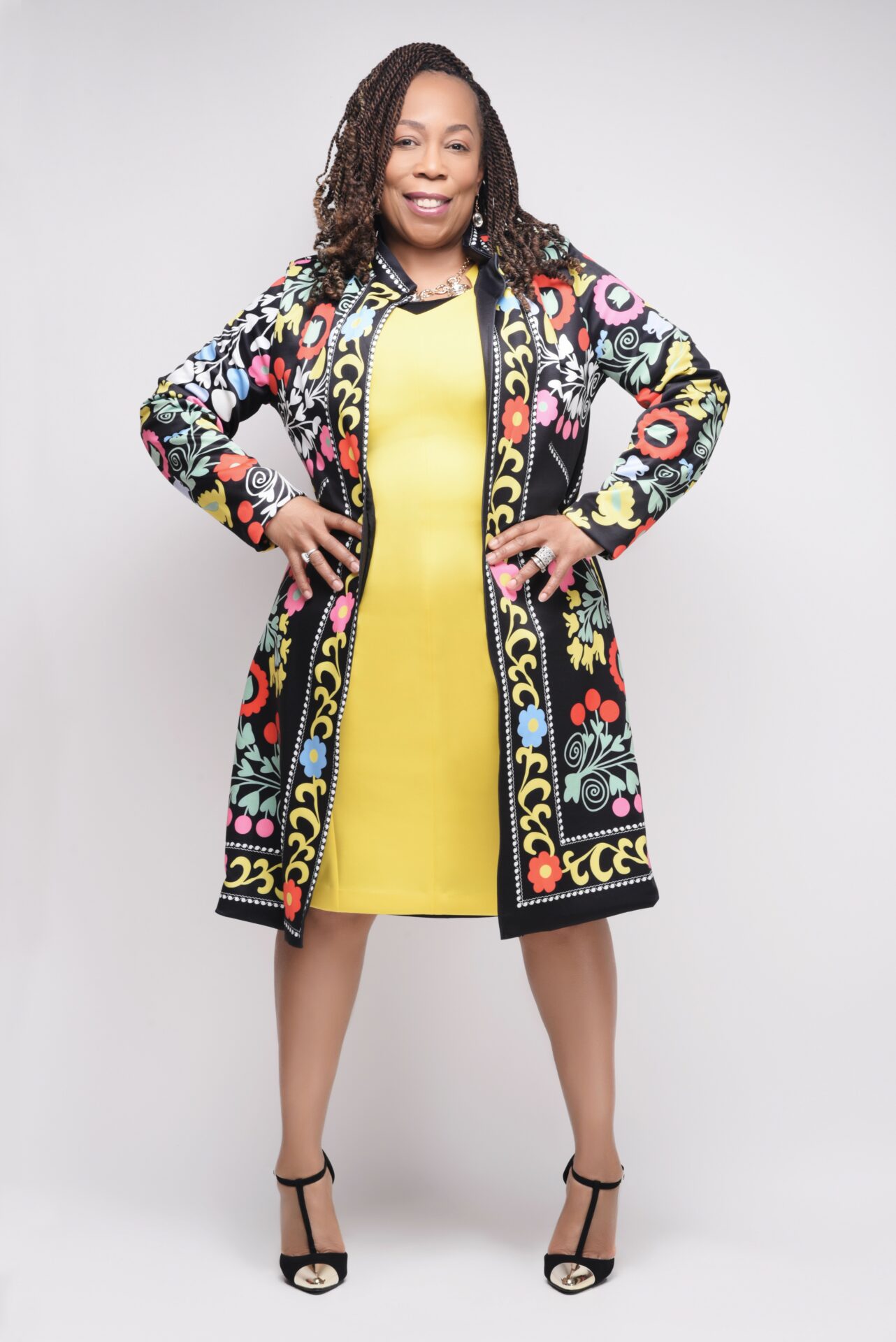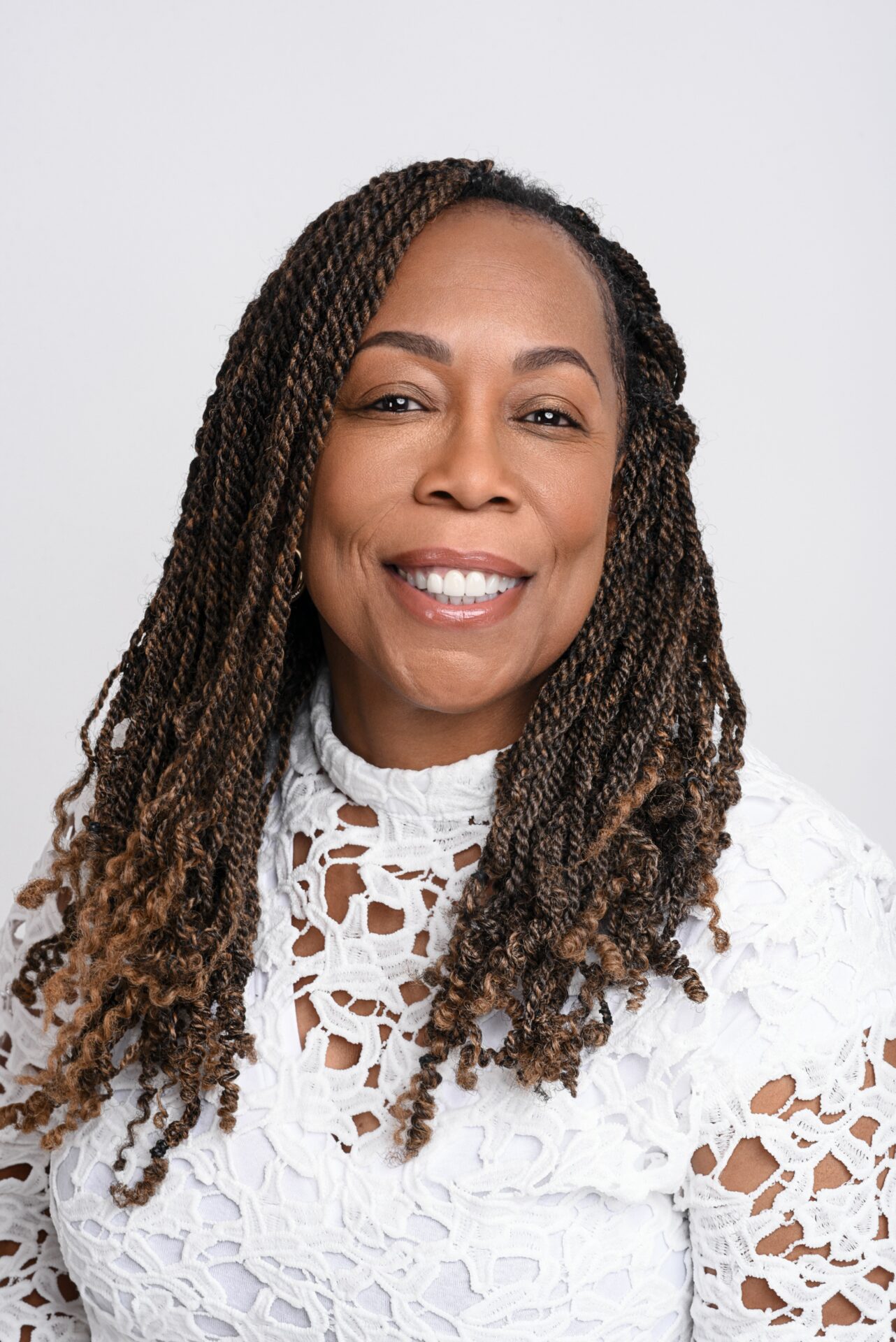We caught up with the brilliant and insightful C. NaTasha Richburg a few weeks ago and have shared our conversation below.
C. NaTasha, we’re thrilled to have you sharing your thoughts and lessons with our community. So, for folks who are at a stage in their life or career where they are trying to be more resilient, can you share where you get your resilience from?
My story of resilience
Jovial was the term used to describe me as a little girl. Graced with a mouth full of big teeth surrounded by a bright smile, I was the spitting image of my father. “You look just like June Bug,” my grandma would say as her eyes x-rayed my body from the top of my head to the bottom of my feet in a full visual examination as I entered the doorway of her Baltimore city home. “You walk like him too! You sloth-footed just like him!” Grandma would say. Her assessment of me was often joined by “Ummm, that’s true!” in unison from the family members sitting in the front room in full sight of the doorway as part of their weekly family visits. I would nervously smile and walk toward the cake dish, saying, “Grandma, can I have a slice of cake?” “Yeah, Saundas” was music to my ears. (Saundas is not my name. It was the name my grandma called me, and I liked it.) Being at her house with the smell of coffee in the air and pound cake in the glass cake dish felt good. I was welcomed there.
I wondered why I was selected as the constant reminder of the man who no longer lived in our house. You see, my parents divorced before I started kindergarten. My father carried the “Deadbeat Dad” banner, while my mother was the responsible parent. I learned early on in life that being the spitting image of my father was not a good thing. I was the living, breathing reminder of everything my mother did not like about him. Yes, she loved me as her daughter, but she did not like the man I resembled.
My mother ensured her children were cared for in her old-school approach to parenting, where Children are to be seen and not heard. In that light, I never had “in-home” conversations with my mother. Instead, my mother gave instructions such as, “It’s time for bed,” “Dinner is ready,” and “When I am not home, don’t answer the phone on the first ring. Let the phone ring once, wait a few minutes, and then I will call back. Then you can answer the phone.” Understanding and following instructions felt good to me. Instructions felt like terms of endearment. I longed for endearment. I longed for instructions. I enjoyed following the rules. Once outside the house, or as we mingled in public settings surrounded by onlookers, my mother would converse with me.
One day while riding in the car with my mother, I needed to talk. This was out of character because I normally sat quietly in the back seat only to speak when spoken to. However, I felt a burst of energy coming from my fifth-grade mind. I needed to tell my mother about the reoccurring dream I had. I said,
Mommy, I have a dream every night that scares me, so I wake up. “What is the dream?” she said. Someone wraps me into a blanket and takes me away in the car at nighttime. It was very dark, Mommy. Real Dark!! The person carried me into a house where I am placed into a strange crib. A very nice elderly lady with mostly gray hair smiles as I look at her inside the crib. I feel afraid because I don’t know anyone; I feel alone. I wondered what happened to you, Mommy.
My mother maneuvered into the parking lot of the store. She turned around to look at me as if she saw a ghost. Since she normally did not show emotion, except when John F. Kennedy and Ms. Shirley died, I was puzzled about the seriousness of her tone. My mother said,
“Your daddy and I had a major fight one night directly before you. You witnessed the entire fight. You sat in your toddler’s rocking chair, staring with this blank look on your face. I knew the fight had impacted you badly. I needed to get away from everything. So I wrapped you into a blanket in the middle of the night, then drove you to a babysitter. You stayed with the babysitter for two weeks. Amazingly, you remember that event since you were only eighteen months.
My reoccurring dream was a reality I did not know how to process at such a young age. I carried the reality of that fearful night in my mind until I spoke of it to my mother. The reoccurring dream was a puzzle in my mind for many years, yet it vanished immediately once spoken aloud, never to reoccur in the form of a dream again. Instead, my former dream evolved into an accurate memory of parental abandonment. I eventually learned that my dream addressed my fear of being abandoned again.
By the time I was sixteen, my mother had eliminated all curfews or other rules given to most teenagers. The only limitations I had put on my life were the parameters I established for myself. I monitored my behavior to honor those things that would make a doting parent proud. So, I cooked, cleaned, cut the grass, and stayed out of my mother’s way when she came home. I ensured that I came home based on the curfews my friends’ moms established.
Once during my high school years, a group of friends and I attended an event. We were extremely late getting home. My friends’ parents were frantic, checking the authorities for possible reports about our whereabouts. I finally entered the house at approximately 5:00 am without explaining my tardiness to anyone. No one looked for me or awaited my arrival. That did not feel good.
Since fifth grade, I enjoyed single-handedly preparing Thanksgiving dinner as one of my household responsibilities. My mother would participate in a duckpin bowling tournament every Thanksgiving. If invited, this freed me to attend Thanksgiving festivities with my friends, or I could stay home alone. One Thanksgiving, I was feeling really low since I was home alone. However, my mother brought many of her friends from the bowling alley home to eat the dinner I prepared. I was not invited to participate in the festivities they enjoyed in our family dining room. That day I realized I needed to bury the dream that my mother would like me one day. I was eighteen years old when I began the process of mourning the loss of my mother. I did this to stop feeling hurt because she did not like me.
Yes, my mother was still alive when I began to mourn the “loss of my mother.” During the initial phase of my grieving process, I did so in the privacy of my bedroom. I cried a lot. I did not tell anyone what I was feeling. I allowed myself to feel the sorrow. Phase one: I was angry that I did not have a mother who adored me, so I focused on my desire to attend college. My mother tried very hard to make college an impossible option for me. She would use a loud voice to speak with family members on the phone about how awful I was. I heard every conversation. I was more determined to focus my dreams on my future self.
Eventually, my mother had a change of heart about supporting my college dream. She agreed to co-sign my student loan paperwork. At twenty years of age, I left home to go away to college. Phase two: I completely let go of the notion that my living mother would ever like me. I didn’t write home or receive any letters from home. My mother was happy I was out of her house. I learned to enjoy my new beginning. Phase three: I learned to stand alone to face life with purpose and the motivation to accomplish great things. That process allowed me to move forward and not look back.
Seldom did I have conversations with my mother after I left for college. I loved my mother even though she never liked me. I accepted my mother as the person she was. My resilience allowed me to accept my mother as she presented herself to me. I make it through life with a healed heart; I mourned the loss of my mother at twenty years old. Thirty-eight years later, my mother took her last breath and died.
Thanks for sharing that. So, before we get any further into our conversation, can you tell our readers a bit about yourself and what you’re working on?
C. NaTasha Richburg has been married to Melvin for over 41 years. The couple has four grown children who reside in locations around the country. Melvin also extraordinarily supports every aspect of C. NaTasha’s professional accomplishments. After 31 years of a Federal government career as an Information Technologist executive, C. NaTasha moved to the next phase of life, working full-time as the CEO of CNR Ministries, LLC/C. NaTasha Productions. C. NaTasha is an Author, Information Technology consultant, Life coach, Talent manager, and Information Technology Instructor at the University of Maryland Baltimore County (UMBC). C. NaTasha Productions produces music and concerts without profanity, derogatory lyrics, and degrading images. C. NaTasha Productions believes: “Music is what real feelings sound like.” C. NaTasha artists have traveled nationwide and abroad to share their music. C. NaTasha is the author of twelve books; her latest title is “People Ask…What is the secret of our 36-year marriage.” Mrs. Richburg’s book is in collaboration with her daughter Ericka Richburg’s books, “Abandoned Guilt and Absorbed Gladness … My 4,718 Day IVF Journey” and “Married to the Dream… An IVF story.” Mrs. Richburg acts as an Executive Life Coach for clients nationwide. She participates in speaking engagements to empower audiences about having the determination to realize their dreams. Despite Mrs. Richburg’s busy schedule, she has regular dates with her husband, Melvin, which affords the balance needed to maintain a happy lifestyle. As part of this post-pandemic lifestyle, Mrs. Richburg looks forward to traveling extensively to converse with live audiences. She is currently working on an Information Technology project in support of the IVF process.
There is so much advice out there about all the different skills and qualities folks need to develop in order to succeed in today’s highly competitive environment and often it can feel overwhelming. So, if we had to break it down to just the three that matter most, which three skills or qualities would you focus on?
The qualities associated with baseline academic achievement gained at college in the institutions; B.S., Business Administration, Frostburg State College; MBA, Marketing Management, Morgan State University; MIS, Johns Hopkins University, Telecommunications, and professional experiences have enhanced my thought processes. Additionally, I continue to teach courses, at the University of Maryland Baltimore County allows me to stay current regarding the theory of Information Technology Project Management and Human Resource Management.
The advice for folks early in their journey is to remain lifelong learners. I continue to read new books and study new concepts. Use everything you learn to mentor others.
If you knew you only had a decade of life left, how would you spend that decade?
The challenge that currently faces C. NaTasha Productions is to complete the marketing for the book “Married to the Dream” and couple the book with execution of new software project that will support the IVF process.
Contact Info:
- Website: www.cnatashaproductions.com
- Instagram: @cnrproductions8
- Facebook: @CNaTashaProductions
- Linkedin: C. NaTasha Richburg
- Youtube: https://www.youtube.com/@c.natasharichburg354




Image Credits
All photo are taken by Aisha Butler, Jazzy Studios.




